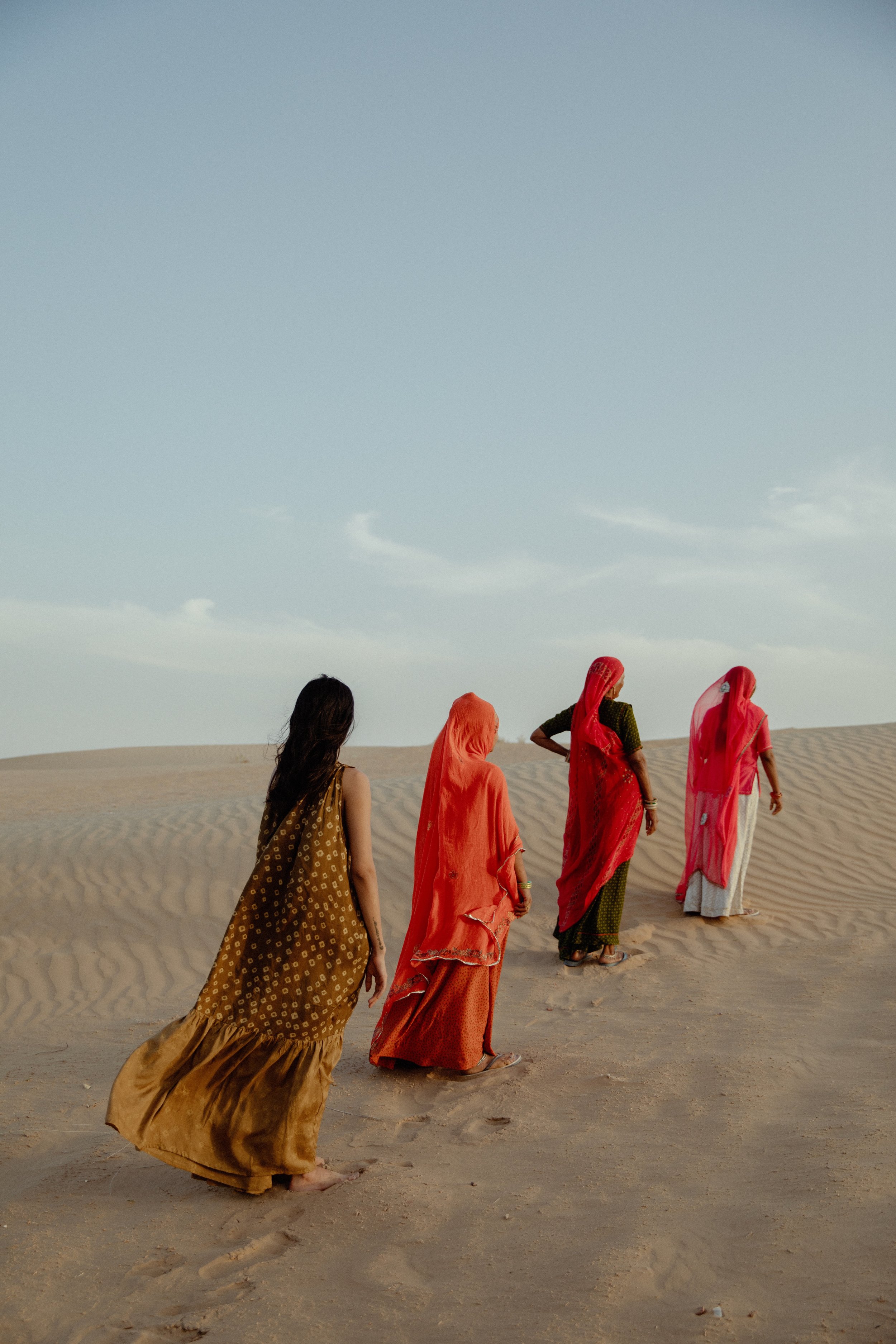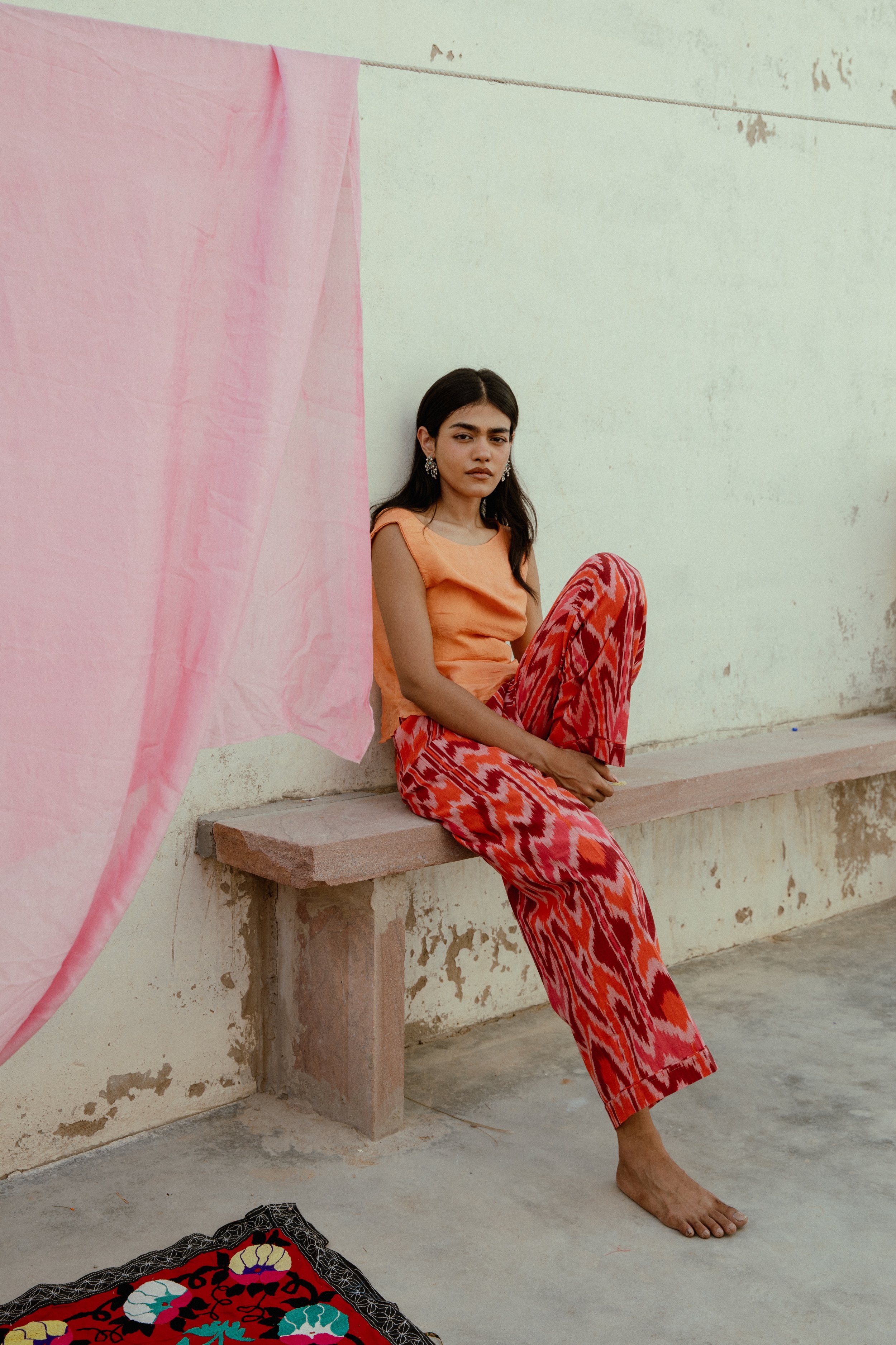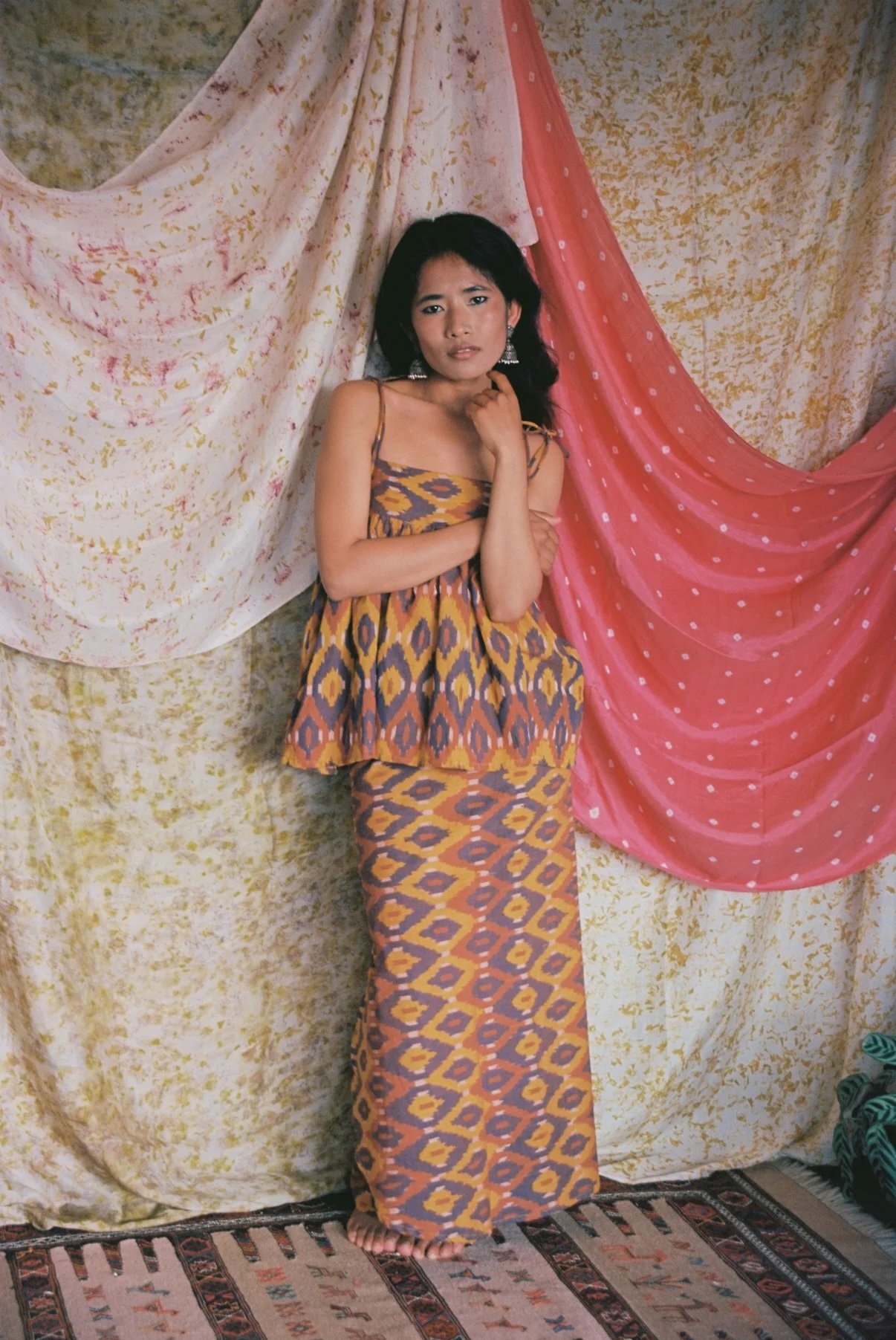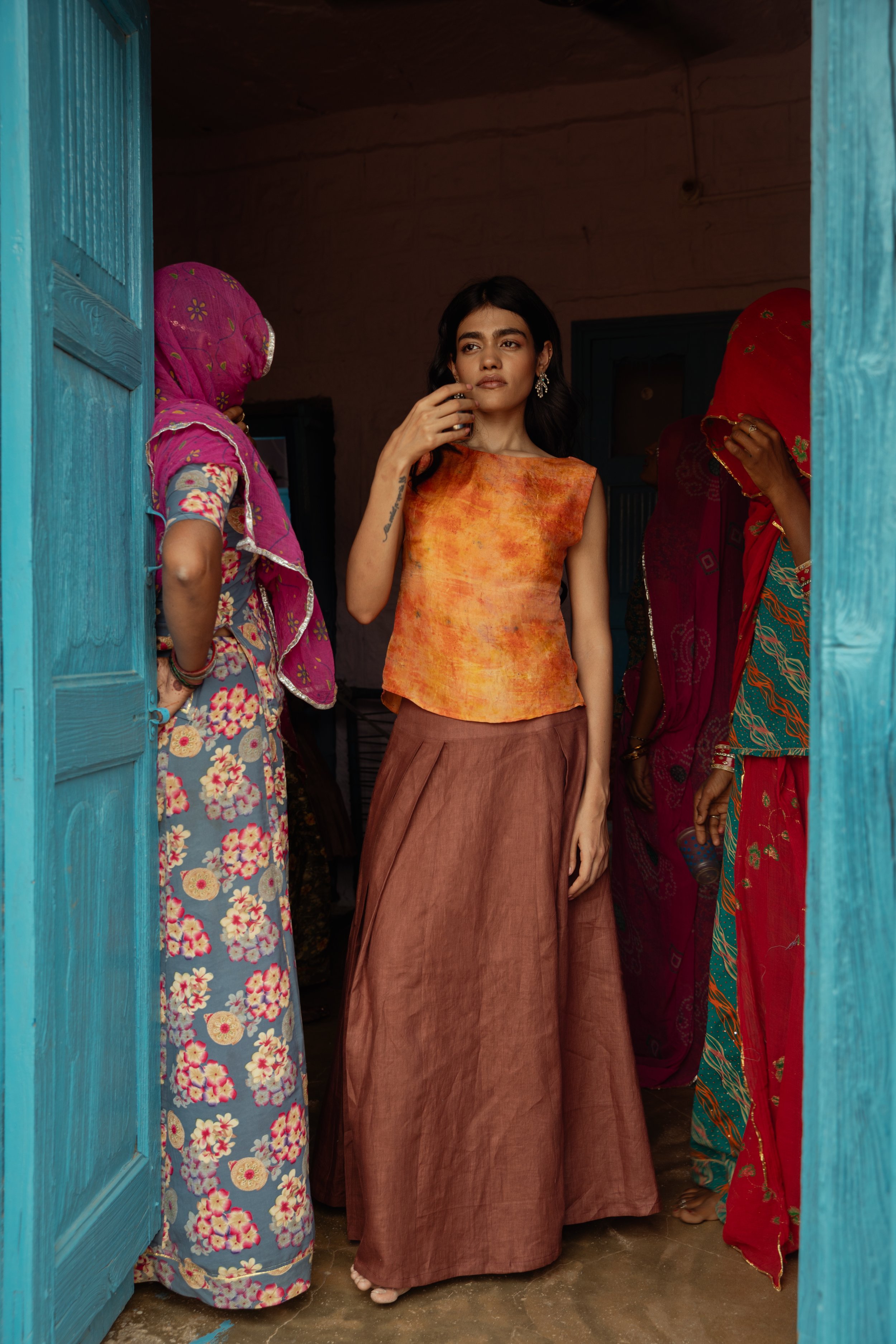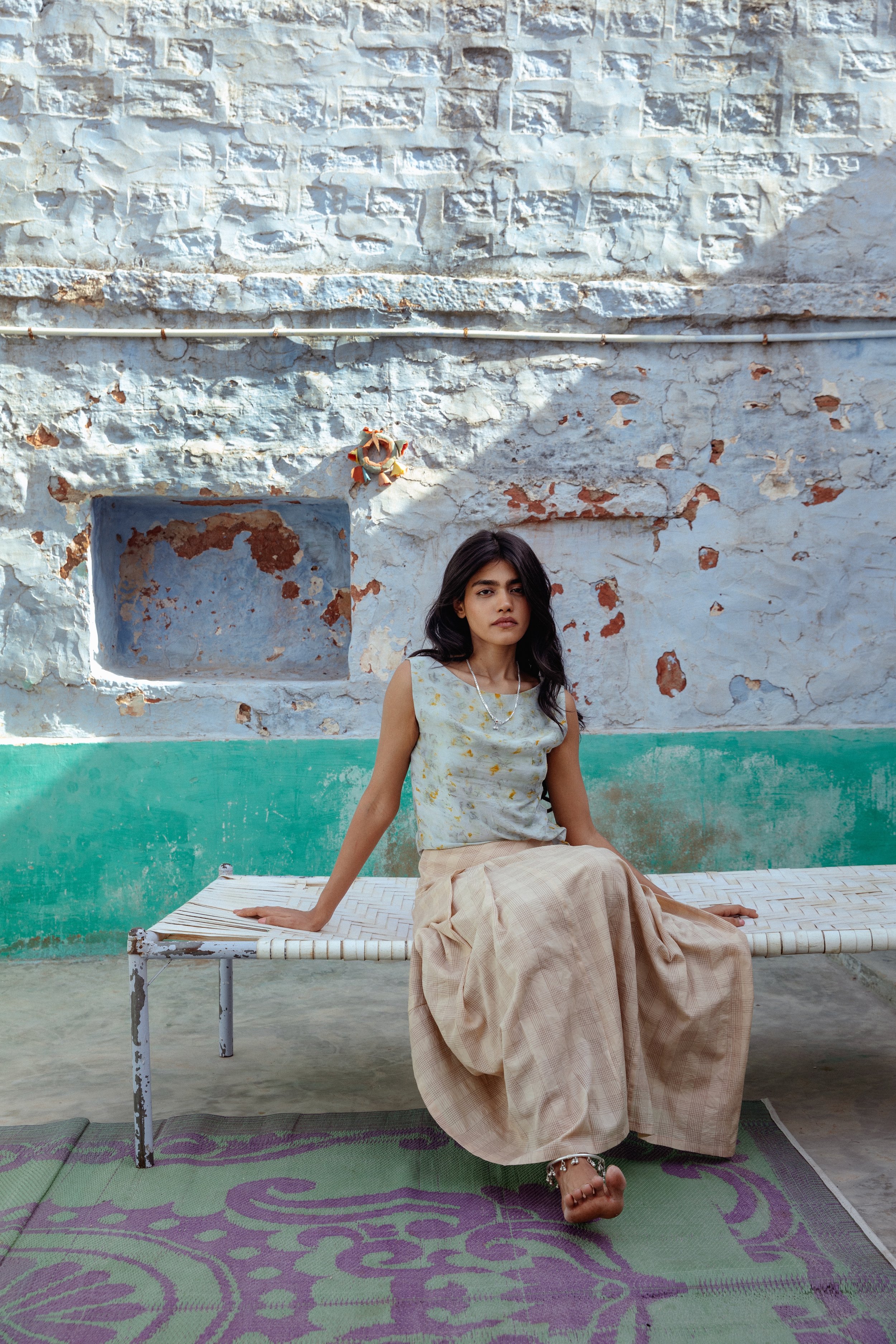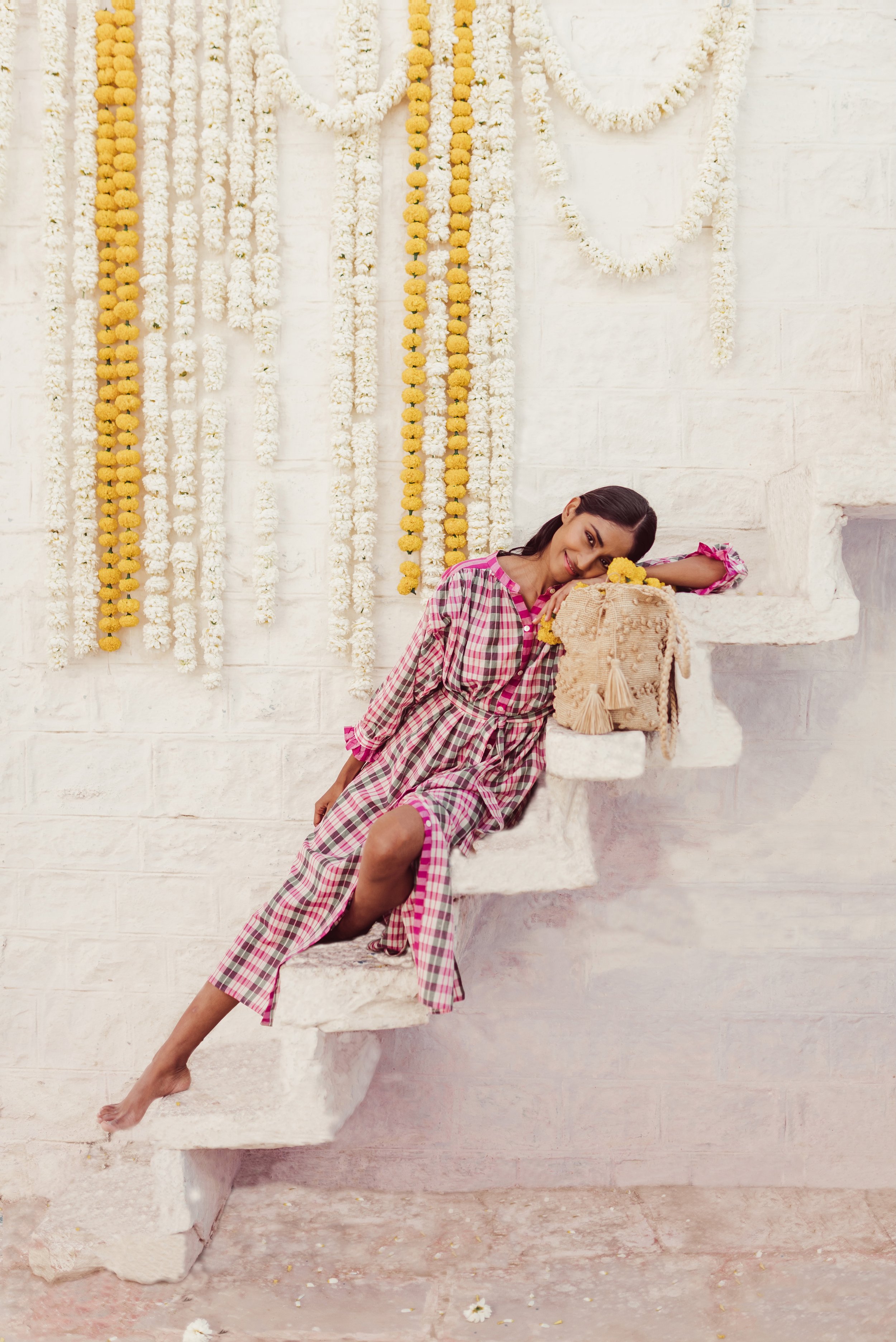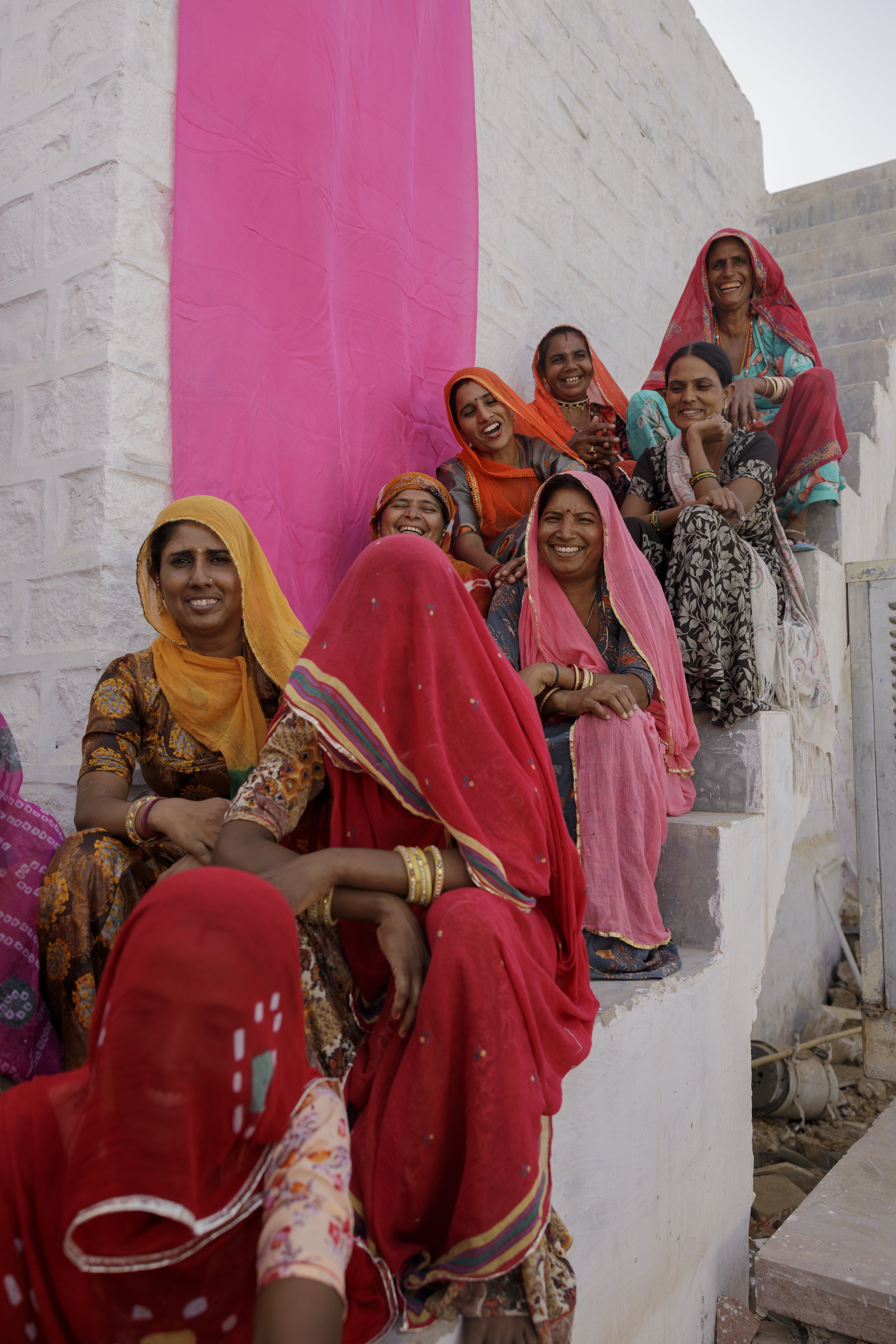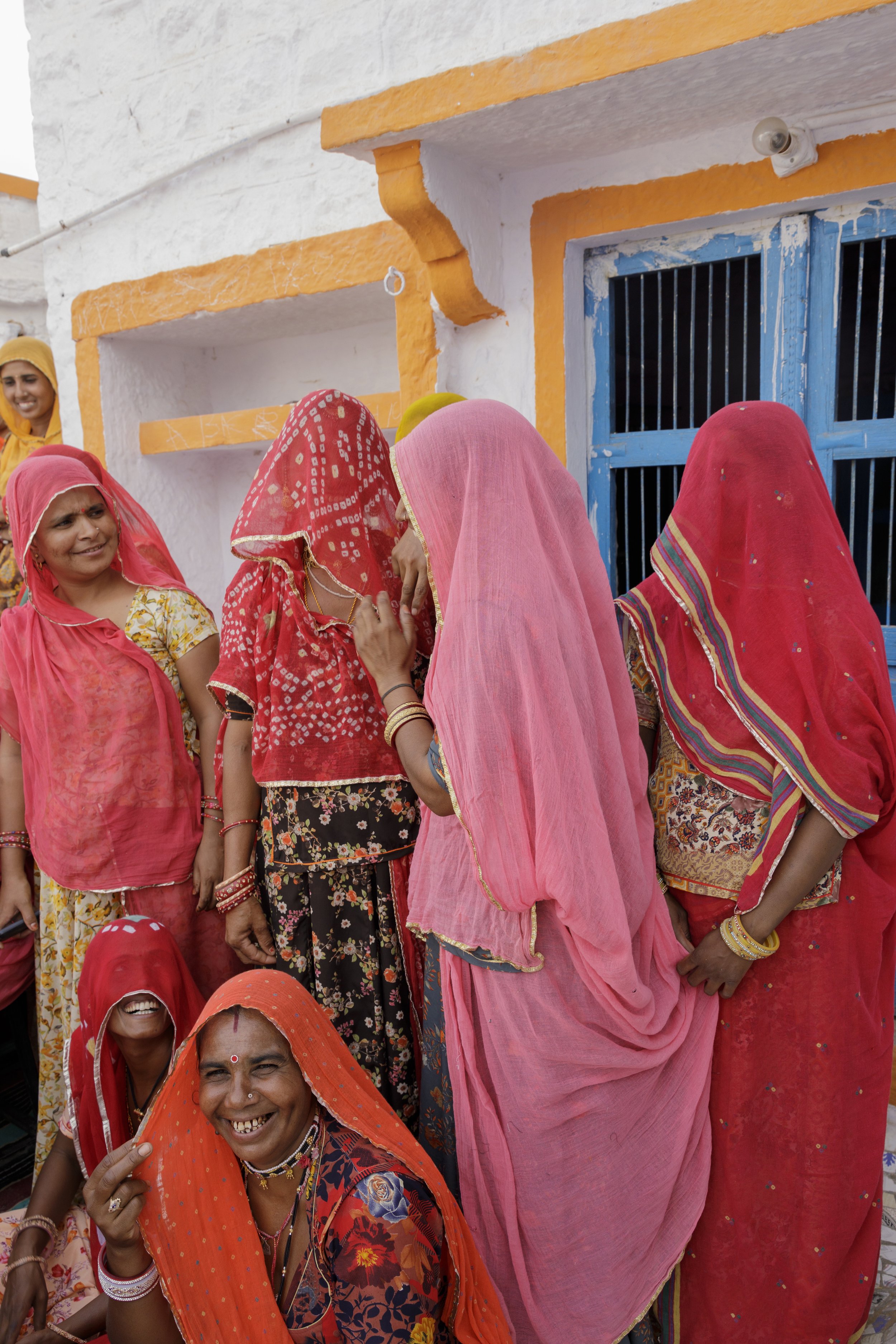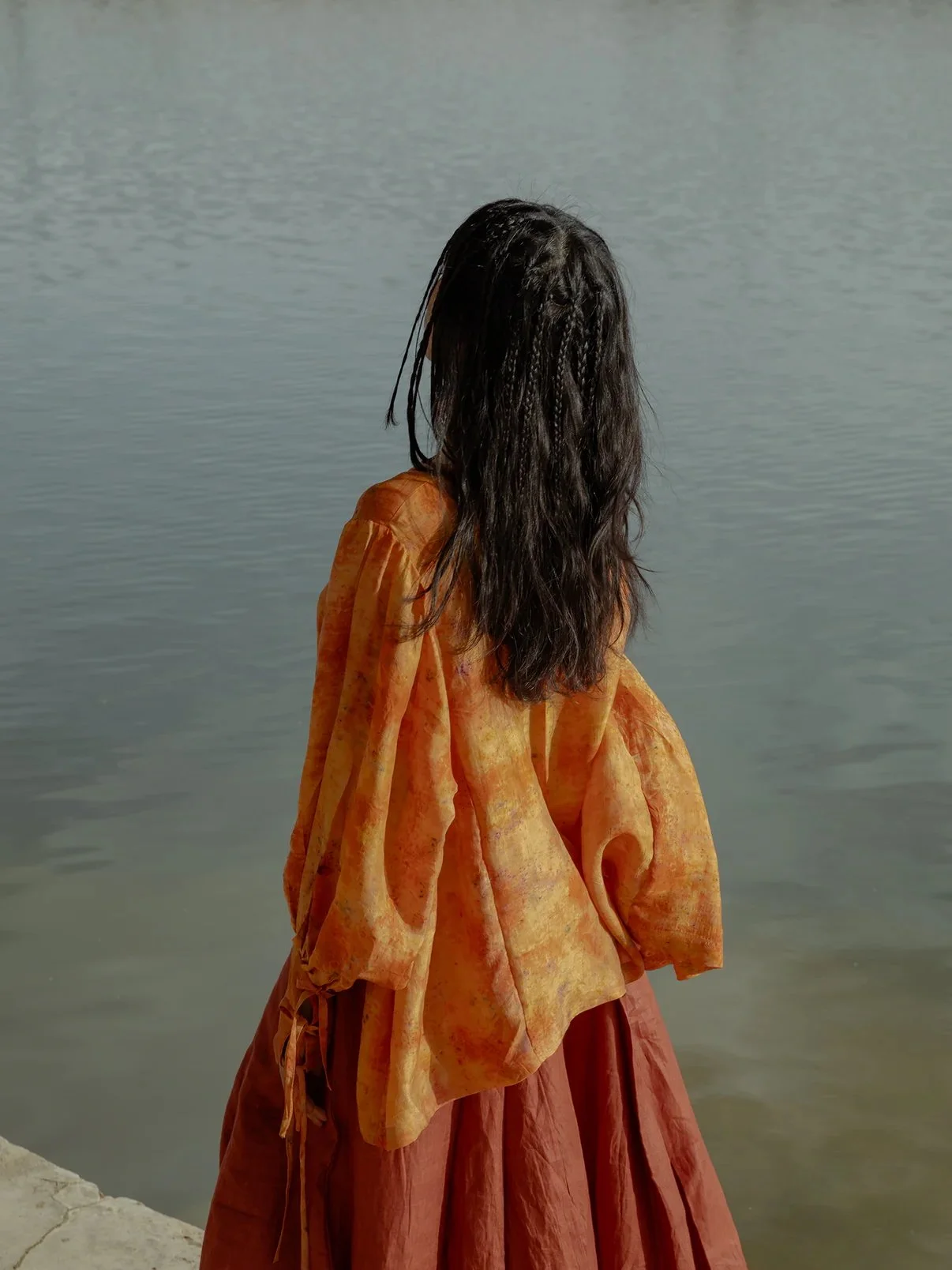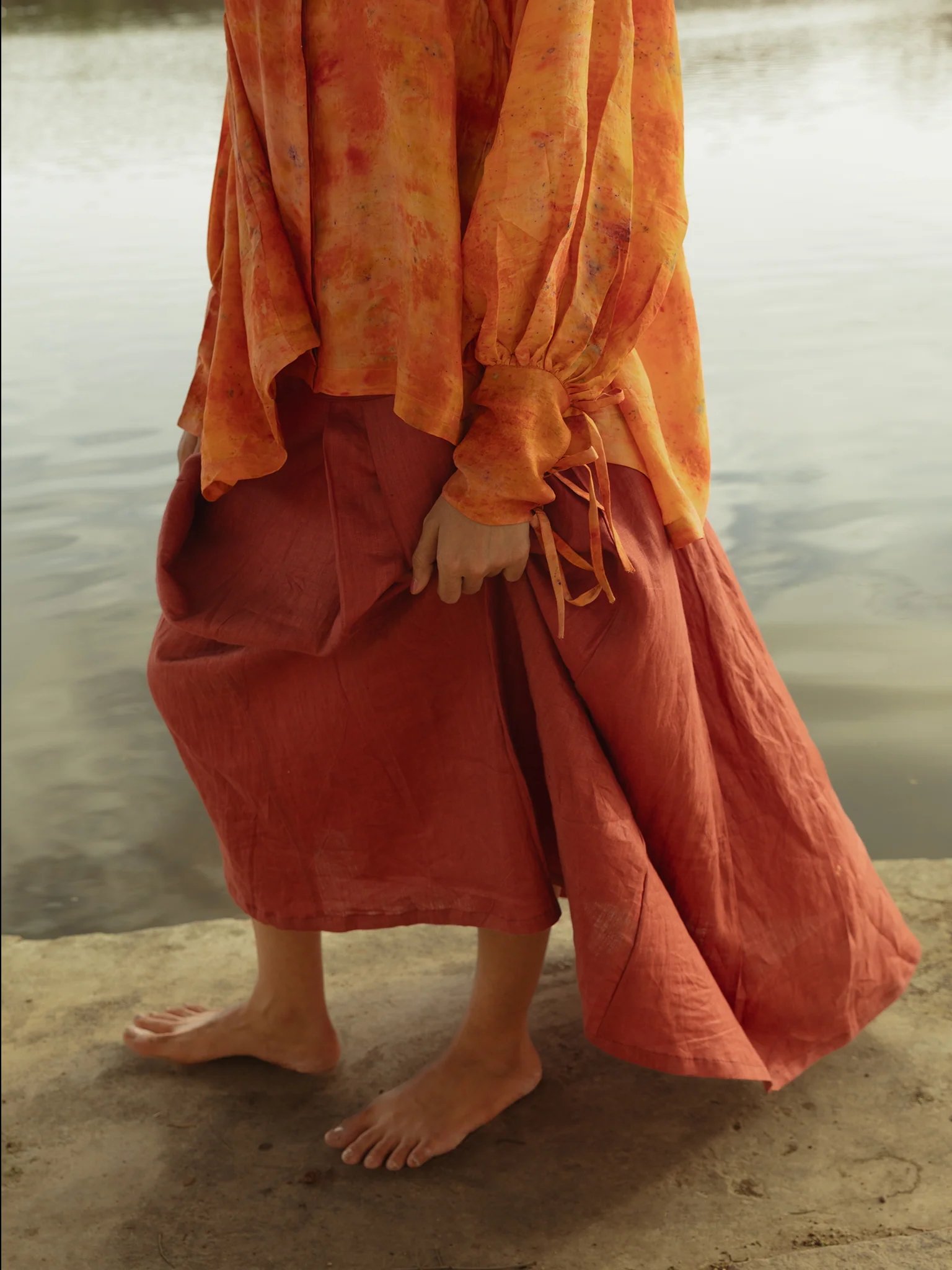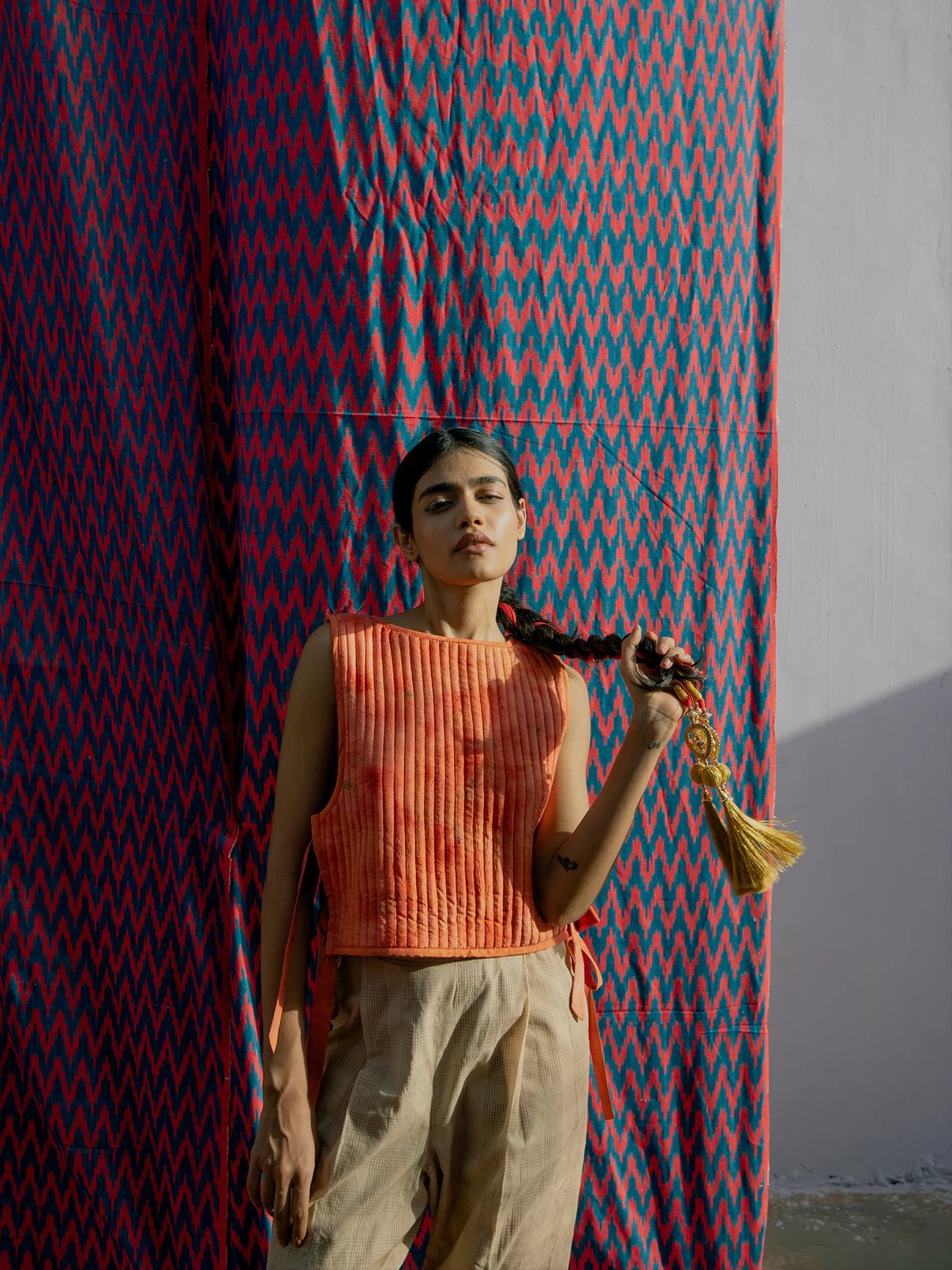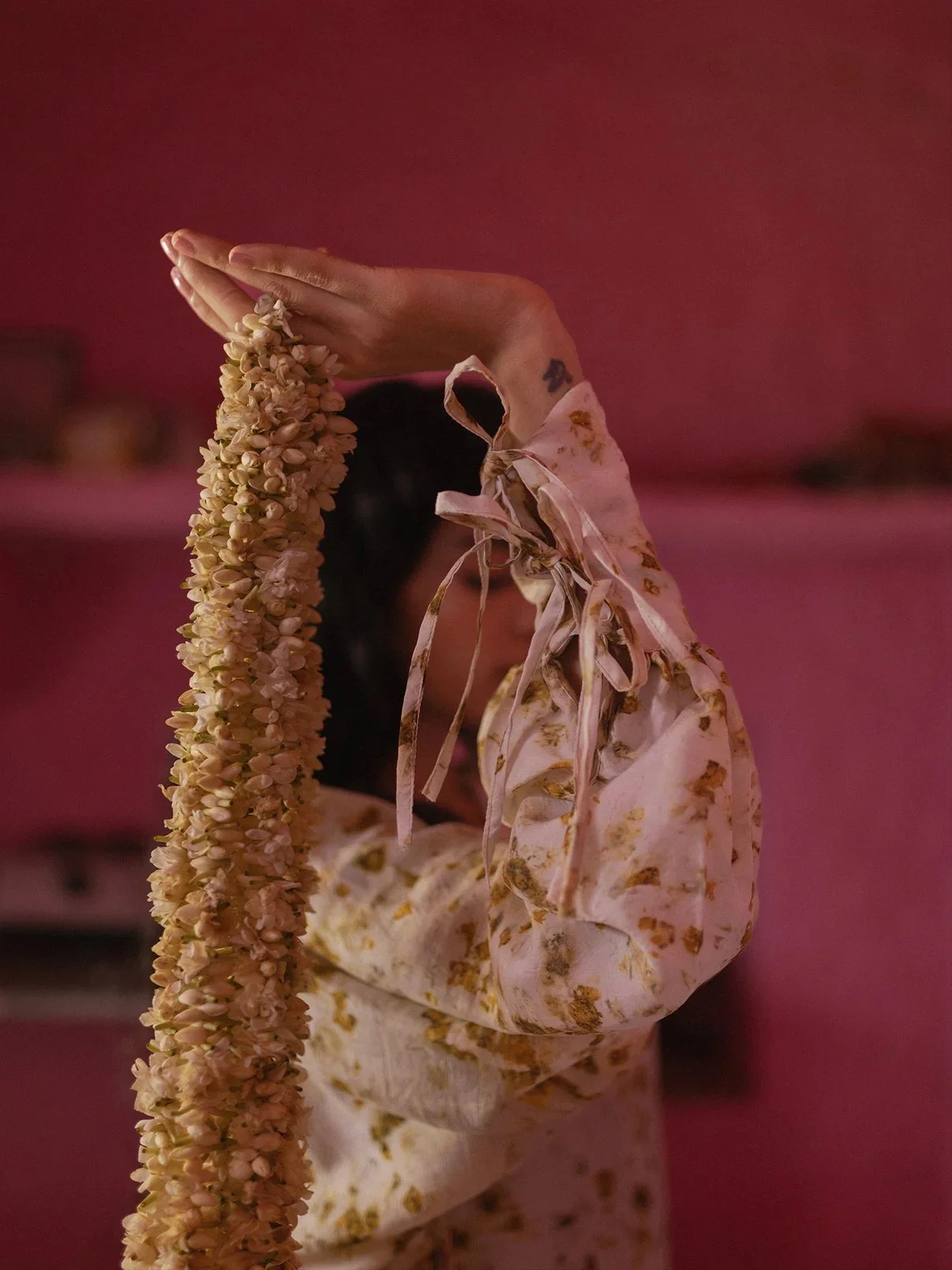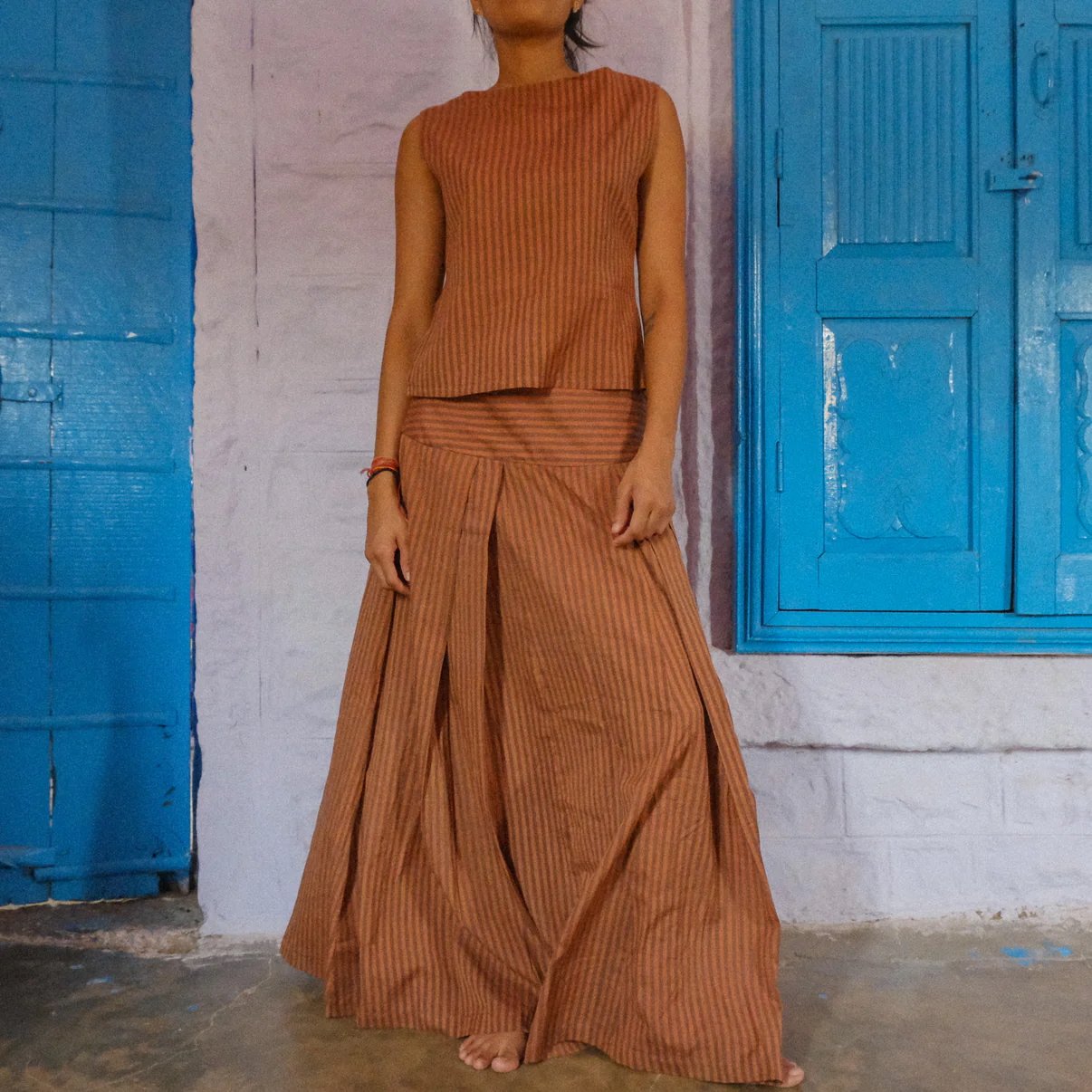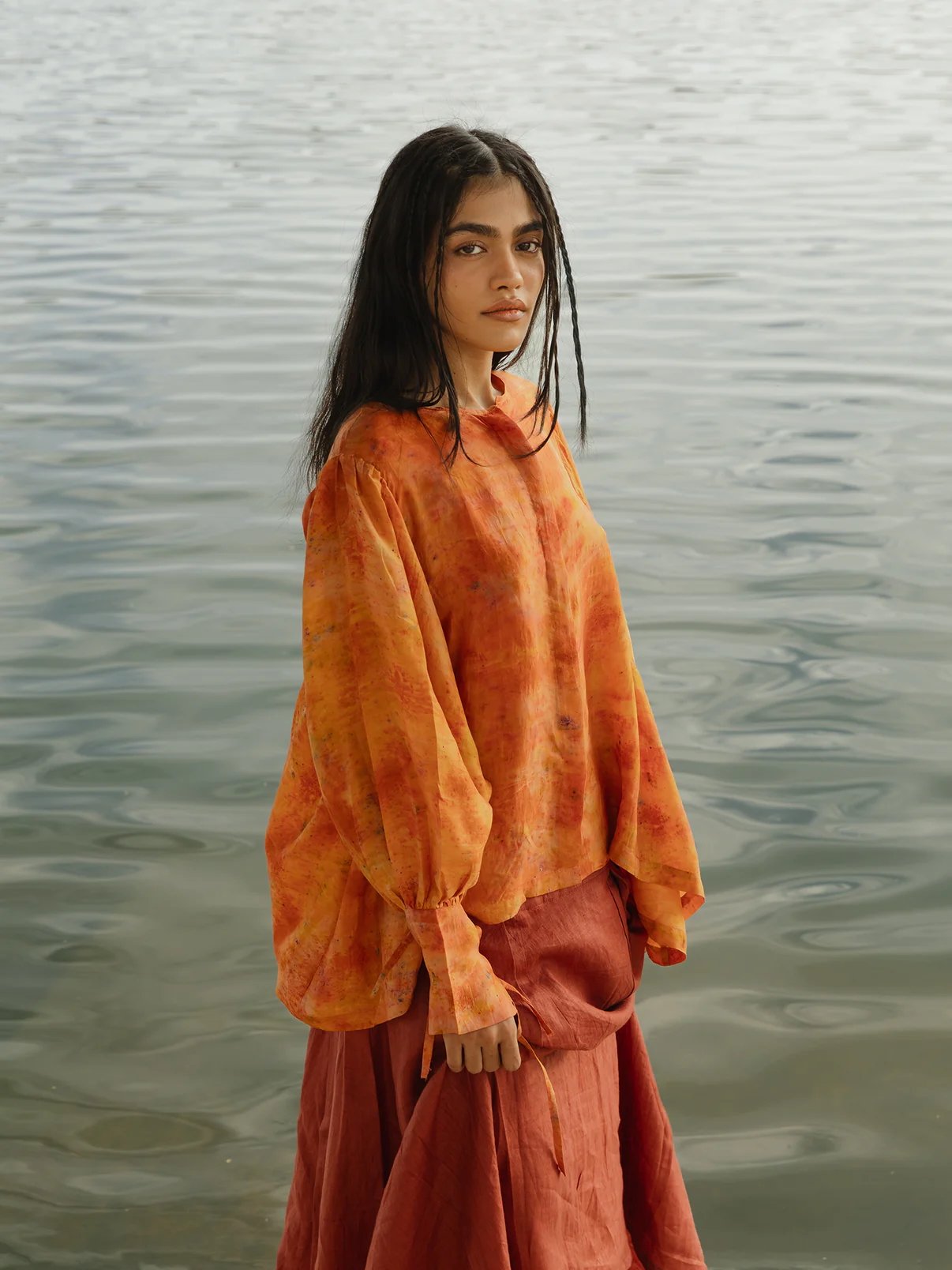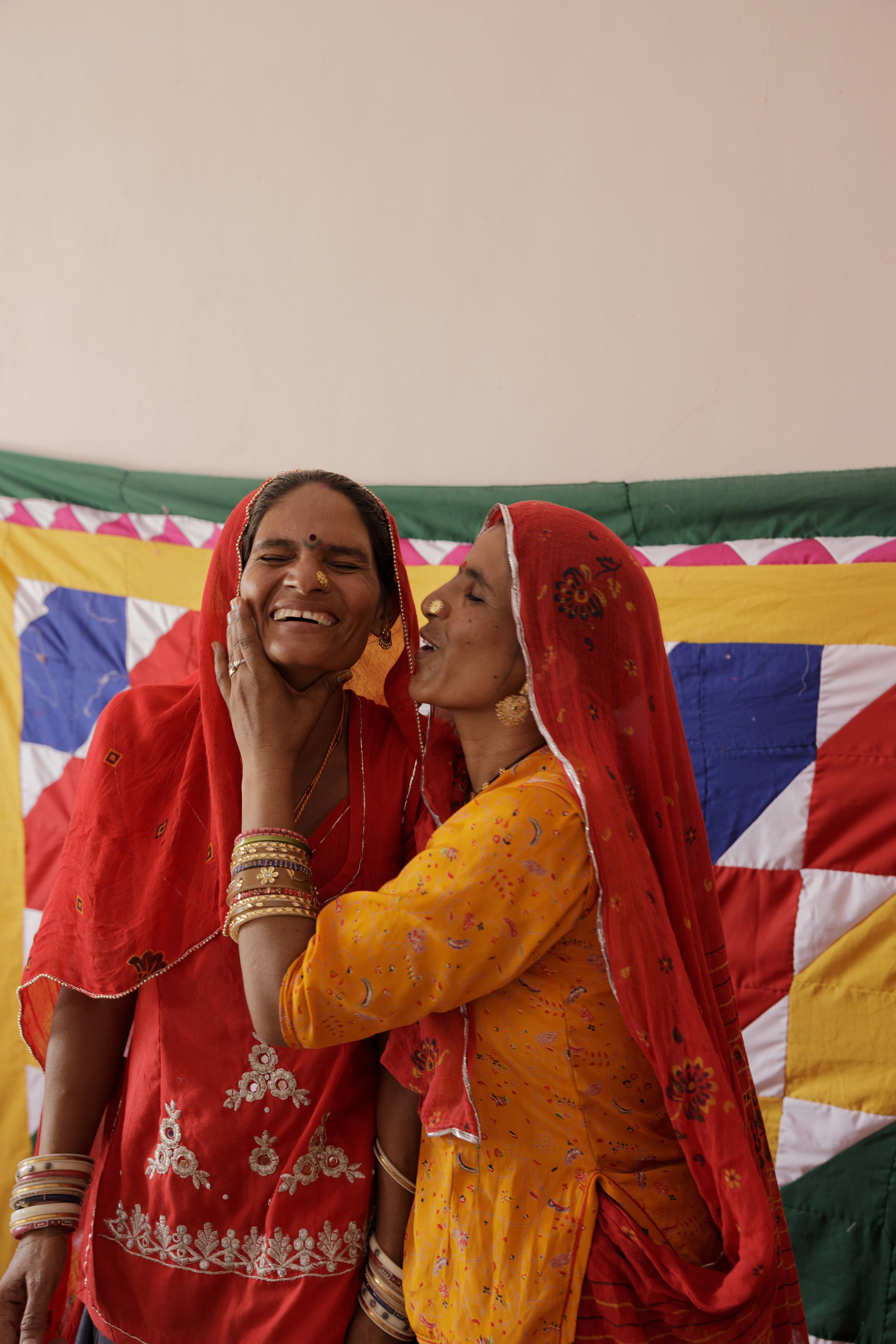Saheli Women
Photos courtesy of Saheli Women - Photographer Naveli Choyal
The Saheli Women are a rarity for a remote artisan community in the Global South, they are a social media phenomenon with a superior ability to tell their story through incredible visual imagery, that has resulted in nearly 30,000 engaged followers from around the world.
Saheli Women, which means ‘female friend’ in Hindi, leverages local knowledge and skills to create meaningful opportunities for women that preserve traditional crafts through the production of quality garments.
Acting as a bridge between rural Indian artisans and international fashion brands, the Saheli Women create ethical and sustainable garments, accessories, and homeware, through a responsible and ethical supply chain.
By investing in women’s economic empowerment, they support gender equity, strengthen economies, support thriving societies, and enable access to education for women and girls, breaking the cycle of poverty and uplifting women.
Saheli Women have built an organisation of women, by women, for women, fostering education, career opportunities and financial independence.
Founded in 2015 by Madhu Vaishnav, the Saheli Women was established with just five women and $100.
A visit to her husband's native village in Bhikamkor, India, brought Madhu face to face with extreme poverty and women’s struggle to provide for their families.
The visit resulted in Madhu resolving to effect positive change and going back to university to study sustainable development at the University of California, Berkeley.
After graduation, she established the first humanitarian workshop in the village, but without jobs or financial independence, the women struggled to apply their learnings.
Knowing that each woman owned a sewing machine from their marriage dowry, Madhu identified an opportunity to leverage the women’s skills and resources as a tool of empowerment and began offering skills development training.
Skills development is still the core of their work, and they offer a variety of development programmes in craft practices and slow fashion manufacturing.
The women are paid a fair wage, fifty percent higher than the average income for similar work across India. They also have shorter workdays, enabling the women to fulfil their familial responsibilities.
The Saheli Women actively work to remove employment barriers for women through skills training, transport assistance, health insurance, on-site childcare, and self-managed scheduling, creating a safe and welcoming workplace, free from discrimination.
Saheli means 'female friend' in Hindi -
Saheli means 'female friend' in Hindi -
Many women in India have restricted rights and access to employment opportunities in the villages. In marriage women are expected to fulfil their role as wife and mother, caring for the family and taking care of domestic duties.
Saheli Women recognize that women play a crucial role in sustainable development and believe that fashion must empower women.
They are committed to an ethical fashion system that recognises the transformative potential of female empowerment, placing their workers first and striving to produce ethical fashion that generates a sustainable income for their workers.
The Saheli Women help to preserve the culturally rich practices of craftsmanship in the region using material culture to create livelihood opportunities which are far too often absent in many remote villages.
With each generation less interested in continuing traditional craft practices, many are at risk of being lost.
Saheli Women strive to sustain these crafts by highlighting their value and importance and by sharing the names and stories of the women who make the clothes.
Since Madhu believes the current fashion system has to change by removing common power dynamics in the workplace. The atelier revolves around the needs of the women, as opposed to the other way around.
Women are not expected to conform to the western norm of workplace practices, instead the workplace revolves around their needs.
At any given moment there are women sewing, breastfeeding their children and threading each other’s eyebrows.
There are no schedules, the women get their work done in their own time.
Saheli Women designate work roles based on individual strengths letting the women choose their schedule as well as the type of work they do.
They bring their children to work and encourage the contribution of ideas.
This is achieved by giving the women agency, and acknowledging there is no whole without the parts, no Saheli Women without the women.
The reality is the women are mothers, wives, and daughters, and it’s simply not realistic to ask them to leave these roles at the door of the studio.
Saheli Women instead believe these roles empower them to bring their experiences to their work.
The Saheli Women use traditional family methods to resolve any conflict over a cup of chai.
There is no HR as a buffer between employer and employee but instead an encouraging regenerative method of conflict management, with no chain of command.
Ultimately this way of working has fostered a sense of purpose where everyone is responsible for each other.
By removing the patriarchal hierarchical structure, Saheli Women offer a space for women to run things the way they want, resulting in more collaboration and greater accountability.
The first Saheli Women studio in Bhikamkor began with just five women and now impacts over one hundred artisans and creates garments for international fashion brands.
Throughout their journey Saheli Women have faced many challenges, many rooted in the gendered cultural norms of the region.
The first five brave women who completed Saheli Women’s first skills development training and began working outside their homes was just the beginning.
Women’s earnings started with what seemed an unattainable 3,000 rupees per month, which seven years later has increased to 12,000-17,000 rupees per month, setting a powerful example of possibility, earning them a respected place in their community.status.
Saheli Women’s supply chain is based on the principles of Earth Democracy - in support of a fashion supply chain that values people and planet over profit and growth.
Fifty percent of Saheli Women’s production is made from upcycling second hand saris, giving new life to used fabrics and eliminating waste from their supply chain.
They avoid using synthetic fibres and use shell and coconut buttons instead of plastic, with fabric offcuts for linings, packing bags, sampling, quilting and other innovative uses.
They are committed to the UNs sustainable development goals, to achieve a balance of economic, environmental, and social sustainability.
After 9 years of Saheli Women producing slow fashion for international fashion brands, they launched their own independent collection in 2024. The ‘dhora’ collection, which translates to desert, takes inspiration from the beauty of the Rajasthani Desert where the Saheli Women’s slow fashion studios are located. Incorporating the sand-coloured tones and the vibrant pink sunset hues, the beauty of the arid landscape inspired the fabric in the collection, which features long flowing summer peasant dresses with strappy shoulders and flowing hemlines, alongside back tie tops, a quilted vest and flowing skirts. Each item is vegetable and floral dyed, creating a harmonious colour palette of rich coral to pale peach, burnt orange and luscious tones of pink in hand loomed cotton, pure linen and fine silk. Prices are accessible with tops from $54 US to skirts at $140.




